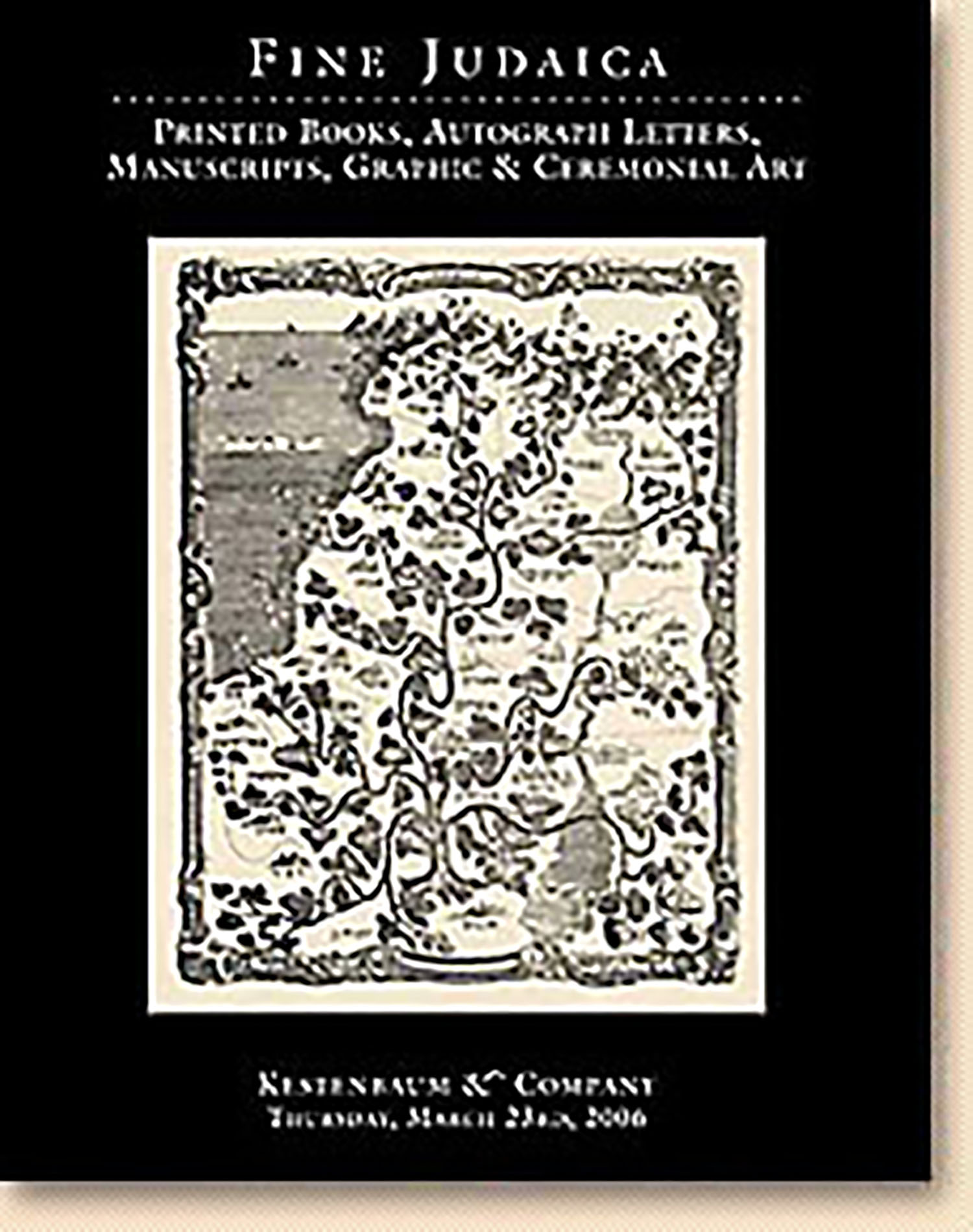In Libros Mosis. De mundi opificio, historicos, de legibus

AUCTION 32 |
Thursday, March 23rd,
2006 at 1:00
Fine Judaica: Printed Books, Autographed Letters, Manuscripts, Graphics and Ceremonial Art
Lot 170
PHILO JUDAEUS
In Libros Mosis. De mundi opificio, historicos, de legibus
Paris: Adrian Turnebus 1552
Est: $1,000 - $1,500
Philo Judaeus (c.20 b.c.e. - 50 c.e.), leader of the Hellenized Jewish community of Alexandria, attempted to harmonize the Mosaic Bible with Platonism. The Renaissance fascination with ancient Greek thought, especially the Neoplatonic school, led to a popular revival of Philo’s works. The Florentine Neoplatonist Marcilio Ficino (1433-1499) was especially fond of Plato. It was at this time too that Philo’s work came to the attention of Jewish scholars - with the publication of Azariah de Rossi’s Me’or Einayim in 1573. De Rossi referred to Philo in a Hebraization of his name as “Yedidyah ha-Aleksandroni,” and dwelt on his writings at length. In the twentieth century, several illustrious scholars examined Philo from a particularly Judaic perspective. Harry Austryn Wolfson thought that there might be overlap of Philo’s allegories and the Rabbinic midrashim that developed in Eretz Israel about that time. Samuel Belkin compared Philo’s presentation of Mosaic law to the normative Halacha. One of the gnawing questions concerning Philo is whether or not he knew the Bible in the Hebrew original or only through the Greek translation of the Septuagint. See S. Belkin, Philo and the Oral Law (1940); H.A. Wolfson, Philo (1947)
